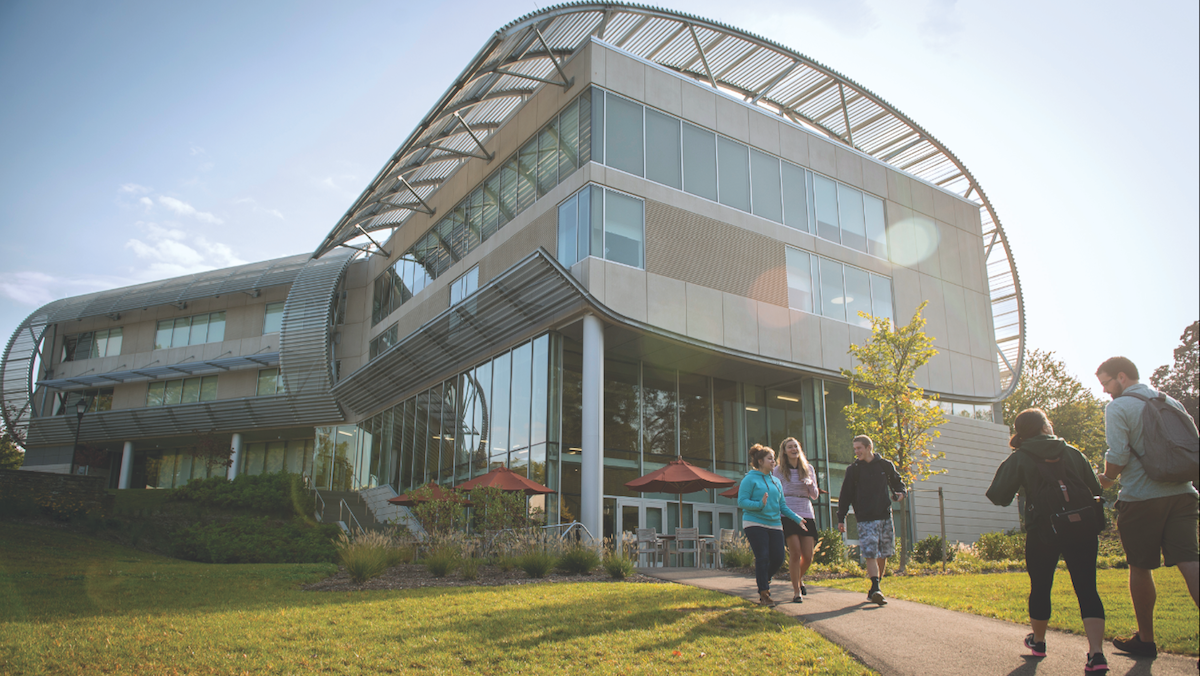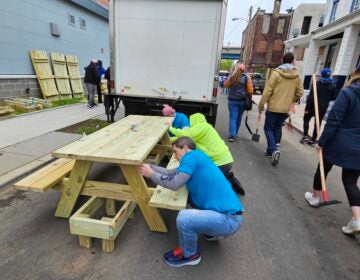Neighbors dissent over Philadelphia University’s 30-year development plan

Philadelphia University's Lawrence N. Field DEC Center (Courtesy of Philadelphia University)
Philadelphia University has rolled out its 30 Year Master Plan, but several local community organizers are demanding school officials go back to the drawing board.
Developed over the past two years, the draft shows the university’s plan for expansion with five-story dormitories on the Ravenhill campus, a softball field on the sledding hill at Warden Drive and a 700-car parking garage at Henry Avenue and School House Lane as highlights.
“The resulting facilities Master Plan enables the University to assure its ability to continue its vibrant, professional education and provides the community an understanding of how that progress might develop,” said the school’s Vice President of Administration and Chief Operating Officer Dr. Jeff Cromarty.
Cromarty says the university has completed several internal studies concerning space utilization, facility condition, ADA accessibility, alignment with the university’s climate action plan, the space needs of certain majors, trends within higher education, market comparisons, sustainable landscaping, site restrictions and best utilization of existing sites and properties.
Under the recent Philadelphia 2035 city-wide rezoning plan, the university became a Special-Purpose Institutional zone, which allows it to develop without having to come back to the community for variances over the next three decades.
Once the East Falls Community Council (EFCC) gives consent, Councilman Curtis Jones will bring the plan to Philadelphia City Council to vote.
However, the EFCC will not approve the 30 Year Master Plan unless changes are made.
“The plan doesn’t have enough specifics,” said Bill Epstein, 1st Vice President of the EFCC and Chair of its Zoning and Land Use Committee.
“For instance, the 700-car parking garage would appear to run into the Wissahickon Watershed or at least close to it.”
Maura McCarthy, executive director of the Friends of the Wissahickon, agrees with Epstein’s sentiments.
“We’re supportive of a 30-year plan, but only if it very tightly adheres to the Wissahickon Watershed Overlay,” McCarthy said.
Because development has led to increased flooding and hazards of erosion, siltation, and channeling enlargement, the overlay states “it is necessary to impose environmental regulations to protect the health, safety, and general welfare, to improve water quality, and to achieve environmentally sound land development within the Wissahickon Watershed.”
“They said they’ll listen, but they didn’t agree to change anything at our request,” McCarthy said. “So we’re engaged in dialogue that could potentially be very positive. “
Lifelong resident Jonathan Berger, who has a PhD in city, regional, and environmental planning from the University of Pennsylvania, was so “appalled” when he learned of the plan that he penned a letter to the EFCC zoning committee, listing the impending detriments to his community:
“Massive increase of vehicular traffic, light pollution from high rise buildings to residential neighborhoods, encroachment on Fairmount Park,” are just a few of Berger’s complaints.
“Diabolical is the only way to describe it,” Berger said. “Their proposal managed to wipe out everything near and dear to our community and showed a total lack of real data.”
Berger suggests Philadelphia University follow the lead of nearby Chestnut Hill College, whose similar Master Plan proposal was revised for the preservation of historical landscapes and the limitation of building footprints and volumes within defined sub-zones.
Epstein says he and EFCC President Barnaby Wittels have discussed their concerns of the plan’s environmental impact with Philadelphia University President Stephen Spinelli and remains optimistic that common ground can be made in the upcoming months.
“I don’t think anybody in East Falls wants to see Philadelphia University anything less than a heathy, vital, competitive institution,” Epstein said. “By and large, they’ve been a good neighbor, a real plus to the community. And I certainly hope that continues to be the case.”
Click here to view the draft of the 30 Year Master Plan proposed by Philadelphia University.
WHYY is your source for fact-based, in-depth journalism and information. As a nonprofit organization, we rely on financial support from readers like you. Please give today.




